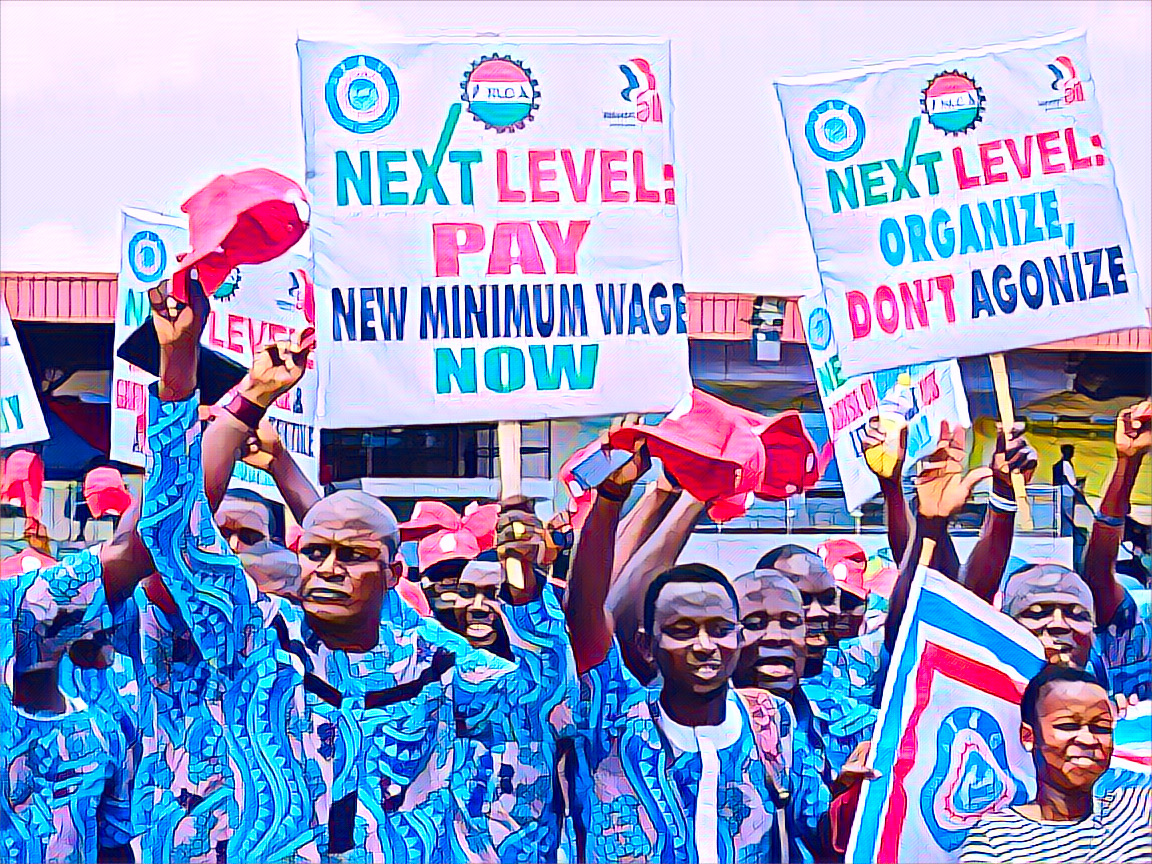Workers Demand N615,000, Government Offers N54,000
The Nigeria Labour Congress (NLC) and Trade Union Congress (TUC), representing millions of Nigerian workers, are demanding a significant increase in the minimum wage. They argue that the current minimum wage of N30,000 ($67 USD), set to expire in April 2024, is insufficient to meet basic needs due to rising living costs.
The unions are pushing for a new minimum wage of N615,000 ($1,370 USD), which they claim is a more realistic reflection of the current economic situation and the needs of an average Nigerian family of six.
Government and Private Sector Proposals Fall Short
The government’s initial offer of N48,000 ($107 USD) was met with strong opposition from the unions. They staged a walkout during negotiations, highlighting the vast gap between their demand and the government’s proposal.
In an attempt to bridge the gap, the government revised its offer to N54,000 ($120 USD) during a follow-up meeting. The private sector also proposed N54,000, aligning with the revised government offer. However, these figures were still deemed unacceptable by the labor unions.
NLC President Joe Ajaero criticized the government and private sector for their lack of seriousness in addressing the issue. He pointed out the absence of state governors at the negotiating table and questioned the authority of some representatives who couldn’t speak definitively on behalf of their constituents.
Ajaero also expressed hope that the private sector would increase their initial offer before negotiations resume.
May 31st Deadline Looms Large
The labour unions have maintained a firm stance on their May 31st deadline for the implementation of a new minimum wage. President Muhammadu Buhari inaugurated a 37-member committee in January 2024 to address the issue. With the deadline approaching, the lack of progress raises concerns about potential industrial action.
A nationwide strike by Nigerian workers could have a significant impact on the country’s economy. Key sectors like transportation, manufacturing, and education could be disrupted, leading to potential losses in productivity and revenue.
The government is likely keen to avoid such a scenario and may be pressured to offer a more substantial increase in the minimum wage to avert a strike.
Path Forward Uncertain
The future of the minimum wage negotiations remains uncertain. With both sides sticking to their positions, further talks are crucial to bridge the gap and reach a compromise. If an agreement isn’t reached by the May 31st deadline, the possibility of a strike becomes a very real threat.
The outcome of these negotiations will have a significant impact on the lives of millions of Nigerian workers and the overall health of the country’s economy.
Source: Punch


